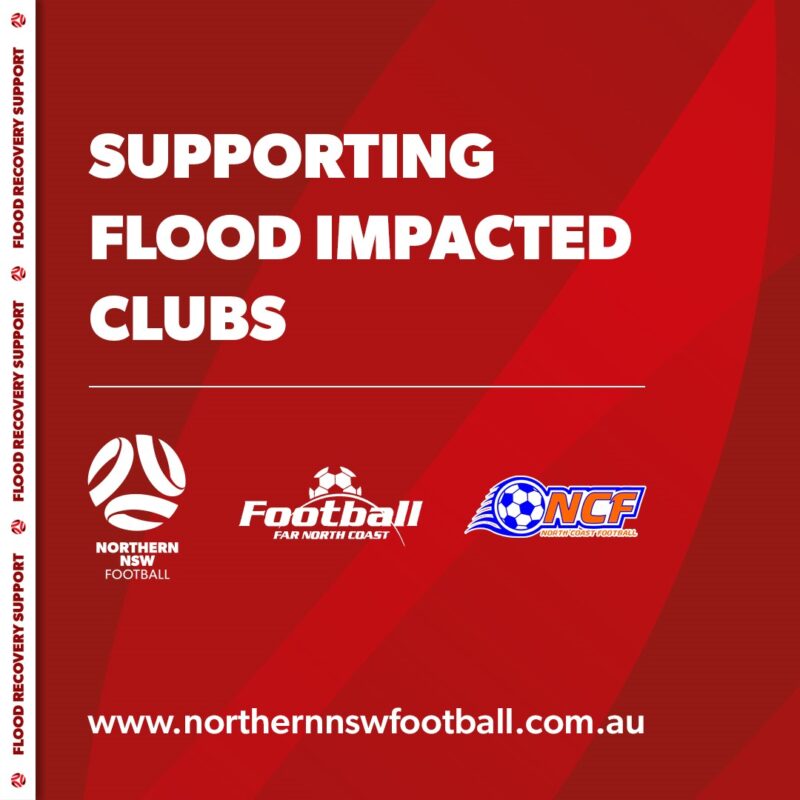Northern NSW Football’s (NNSWF) Board of Directors has committed to tangibly assisting clubs impacted by the devastating floods in Far North Coast and the Clarence to rebound and get back on the pitch when they’re ready to do so.
Coordinated approach
NNSWF has been working very closely with Football Far North Coast and North Coast Football since the disaster. Communication to date with clubs and volunteers has been channelled exclusively through local management to ensure we’re sensitive to local conditions and priorities.
Assessing the damage and impact on clubs is the priority. NNSWF has established a Flood Recovery Hub, which comprises a myriad of resources for volunteers, including a Flood Impact Assessment Form allowing clubs to consistently assess the damage. The information will be used by NNSWF and Football Australia to underpin their funding requests to the Federal and State Governments.
Consultation and assessment vital
NNSWF CEO David Eland said “Assessment is crucial at this stage of the recovery. We need to understand the acute needs prior to allocating finite resources. Clubs requiring immediate assistance are strongly encouraged to connect with their zone who in turn will reach out to the member federation.
“We understand scores of clubs have lost everything. In response, NNSWF has taken the proactive step of ordering a significant quantity of footballs, bibs, markers and portable goals through First Touch Football Supplies which we can distribute to clubs at zero cost in due course.”
What’s needed on the ground
Football Far North Coast General Manager Steve Mackney said “The local football community has been heartened by the offers of help from clubs and individuals throughout northern NSW. However now is not the time to send donations of equipment and apparel whilst clubs are in the midst of cleaning up and assessing the damage and loss.”
North Coast Football General Manager Andrew Woodward echoed Mackney’s sentiment saying “We’ve been overwhelmed by messages of support. We’ll be in a better position to accept assistance when we assess the loss. Coordination is crucial at this stage of the recovery process.”








